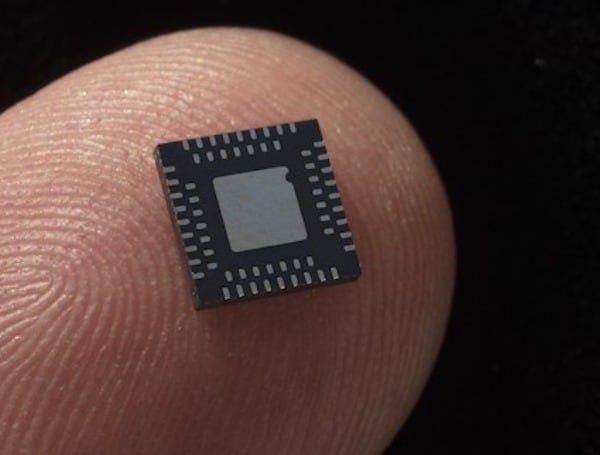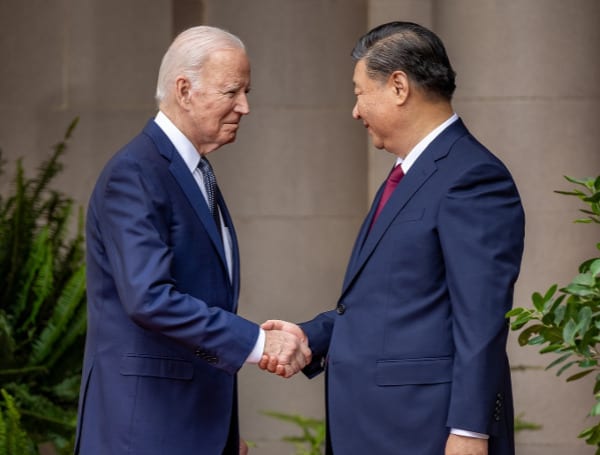The Biden-Harris Administration unveiled an Interim Final Rule Monday on Artificial Intelligence (AI) Diffusion today, aiming to solidify the United States’ leadership in AI technology while safeguarding national security.
The rule introduces a series of mechanisms to streamline the global diffusion of U.S.-made AI technology, tighten controls on adversarial access, and establish trust-based partnerships with key allies.
The rapid evolution of artificial intelligence has brought unprecedented opportunities for economic growth and innovation. However, the potential misuse of AI for malicious purposes – such as aiding cyberattacks, supporting human rights abuses, and developing weapons of mass destruction – underscores the urgency for stringent safeguards.
READ: California Wildfires Claim 24 Lives, Thousands Flee As “Particularly Dangerous Situation” Looms
“AI is pivotal to both our security and economic strength,” the Administration stated. “We must ensure that the world’s AI runs on American rails while preventing adversaries from exploiting these transformative technologies.”
The rule introduces six central mechanisms to responsibly diffuse U.S. AI technology globally:
- Unrestricted Access for Key Allies:
Chip sales to 18 trusted allies, such as the United Kingdom, Canada, and Japan, will face no restrictions. This ensures seamless access for partners with strong technology protection standards. - Streamlined Licensing for Low-Risk Orders:
Orders of up to 1,700 advanced GPUs for benign purposes, such as academic research or medical advancements, are exempt from licensing requirements. This accelerates shipments for low-risk use cases. - “Universal Verified End User” (UVEU) Status:
Trusted entities headquartered in allied nations can secure UVEU status, allowing them to distribute up to 7% of their global AI computational capacity worldwide. This fosters rapid, flexible growth for responsible organizations. - “National Verified End User” (NVEU) Status:
Trusted entities outside countries of concern can apply for NVEU status, granting access to up to 320,000 advanced GPUs over two years. This supports local and regional AI ecosystems while mitigating diversion risks. - Cap on Non-VEU Purchases:
Non-verified entities outside of allied nations can still acquire significant computational power, capped at the equivalent of 50,000 GPUs per country. - Government-to-Government Agreements:
Nations aligning their AI, export control, and technology security efforts with U.S. standards can double their chip caps, incentivizing shared values and cooperative innovation.
The rule also intensifies safeguards against misuse by countries of concern, including:
- Controlled Semiconductor Exports:
Advanced semiconductors will remain inaccessible for adversarial AI training, though still available for general-purpose applications like telecommunications and banking. - Model Weights Security:
Enhanced protections prevent unauthorized transfer of advanced closed-weight AI models to non-trusted actors while maintaining accessibility for trusted users. - Global Standards for Model Protection:
Advanced closed-weight AI models must meet stringent security standards, ensuring secure storage and preventing illicit adversary access.
The new rule builds on chip control regulations enacted in October 2022 and 2023, which sought to restrict the use of U.S.-made semiconductors by hostile nations. Over the past ten months, the Administration has engaged bipartisan lawmakers, industry leaders, and international allies to develop this comprehensive framework.
By bolstering its global AI leadership, the United States seeks to foster innovation while mitigating risks associated with the misuse of advanced technology. The Administration emphasized the dual goals of protecting national security and driving economic growth.
READ: Massachusetts Gov. Healey Now Welcomes Trump’s Help With Illegal Immigrant Crisis
“This rule sends a clear message: America will lead the AI revolution responsibly and decisively, ensuring our technology benefits the world while safeguarding our security,” said a senior administration official.
The Interim Final Rule is expected to shape the global AI landscape significantly, fostering trust among allies while limiting adversarial capabilities. As nations grapple with the rapid pace of AI advancements, the U.S. aims to set the gold standard for responsible innovation and international collaboration.
Please make a small donation to the Tampa Free Press to help sustain independent journalism. Your contribution enables us to continue delivering high-quality, local, and national news coverage.
Connect with us: Follow the Tampa Free Press on Facebook and Twitter for breaking news and updates.
Sign up: Subscribe to our free newsletter for a curated selection of top stories delivered straight to your inbox.


